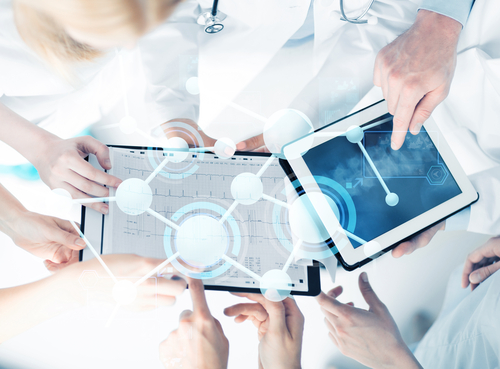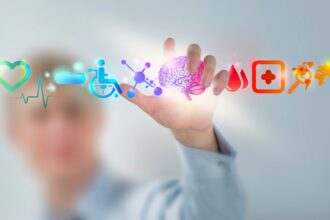The healthcare industry has changed drastically changed over the last two decades, the entire credit goes to technological advancements, that has made this possible. Below are the 8 different ways technology has changed the face of medicine;
Robotic Surgery:
Surgical robotics is an innovative technology that has recently revolutionized the healthcare industry. Surgeries that majorly leave a scar such as laparoscopic surgeries can be easily performed by these machines and result in minimal scarring along with faster recovery. Another fairly significant advantage of robotics surgery is the precision with which the surgeries can be performed, which the human hands cannot. In fact, researchers have suggested that soft-tissue surgeries can be performed by robotic surgical machines more accurately than human surgeons. This is going to be a big transition in the face of medical science.
Robotic Checkups:
How does the idea of robots patrolling the hospital hallways and checking up on patients along with managing a patient’s chart and checking the vital signs without the assistance of a human sound to you? Well, there are hospitals where FDA approved robots are functioning this way, and it really is a leap in the field of medicine. The biggest advantage of using robots for such basic medical use would be improved hospital staff efficiency as they can focus on other important activities. And, the accuracy will improve as robots are programmed machines hence, they cannot make man-made mistakes.
Ingestible Sensors and Smart Pills:
Imagine a situation where your mother forgets to take her daily pill and you get a notification message about it, how cool is that? The idea of the smart pill is as brilliant as it sounds, a small pill which consists of a patch of a sensor made of digestible metals which when swallowed activates the sensor and the signal is transmitted to Bluetooth devices of the caregiver in the family. This technology has been tested extensively and is within our reach now. Now consider if there were an easier way to replace the invasive colonoscopy procedure. Well, technology has made it possible to come up with a disposable pill which has a battery-powered camera embedded to it and can take high-speed photos as it passes through the intestinal tract and then it sends these images to a connected device where the images can be viewed by the doctor. The camera pill has been approved by the US Food and Drug Administration and the procedure is non-invasive and much easier than its alternative.
Technology for Fighting Addiction:
Addiction is the most disturbing issue which seems to be increasing every year, especially amongst teenager and youngsters who easily get influenced and then keep falling back into this loop. The most effective way to eradicate or at least lower the rates is by being vigilant to notice addiction symptoms within your family or friends and if you do, then consulting with highly skilled addiction treatment specialists who can help them fight their addiction would be the first step to get them closer to normal life. Technology had advanced in so many fields including the field of treating addiction. The way addiction is being treated is changing due to the involvement of TAC-Technology-Assisted Care which helps in imparting psychotherapy treatment to the patients via the web-based program. Technology is also changing how we treat addiction to different substances. Technology-Assisted Care (TAC) involves the use of devices driven by technology to deliver some aspects of psychotherapy or behavioral treatment directly to patients via interaction with a web-based program. Studies have shown that this method has been effective in treating many cases involving substance use.
3D Printing:
When we talk of technology advancement in the field of medicine, how can we forget the 3D printing? If you have been an avid watcher of the popular medical show- ‘Grey’s Anatomy’, you must have come across the miracles that could be achieved in the field of medicine with the use of this machine. 3D printing machine can be used to manufacture anything hence to be able to create a prosthetics or synthetic skin with the help of it should come as no surprise to you and it does take medicine to the next level playing field. 3D printers can also produce specialist ID lanyards for doctors.
Laser Technologies:
Laser technology is not new but has been around for years and its use in the field of medicine is only increasing. From treating cancer to correcting your vision and also being used for cosmetic surgeries, laser technology can do wonders in the field of medicine.
Fighting Epidemics:
Infectious diseases are on the rise as every year we hear a new infection that is spreading around. Technology has been very useful to prevent the outbreak of such infectious disease by fastening the entire diagnosis and communication process along with providing tools such as touch-free infrared thermometer to prevent the spreading of the virus.
On-the-go smartphone monitoring
Real-time monitoring of patient’s condition and giving back immediate feedback can be life-saving to many suffering from diabetes or cardiovascular issues. Monitoring the blood sugar levels in real-time to decide when to administer insulin is one such example of real-time monitoring. From the above examples, it is not wrong to say that technology is the driving force behind the changing face of the healthcare industry and making the entire process patient-centered.








